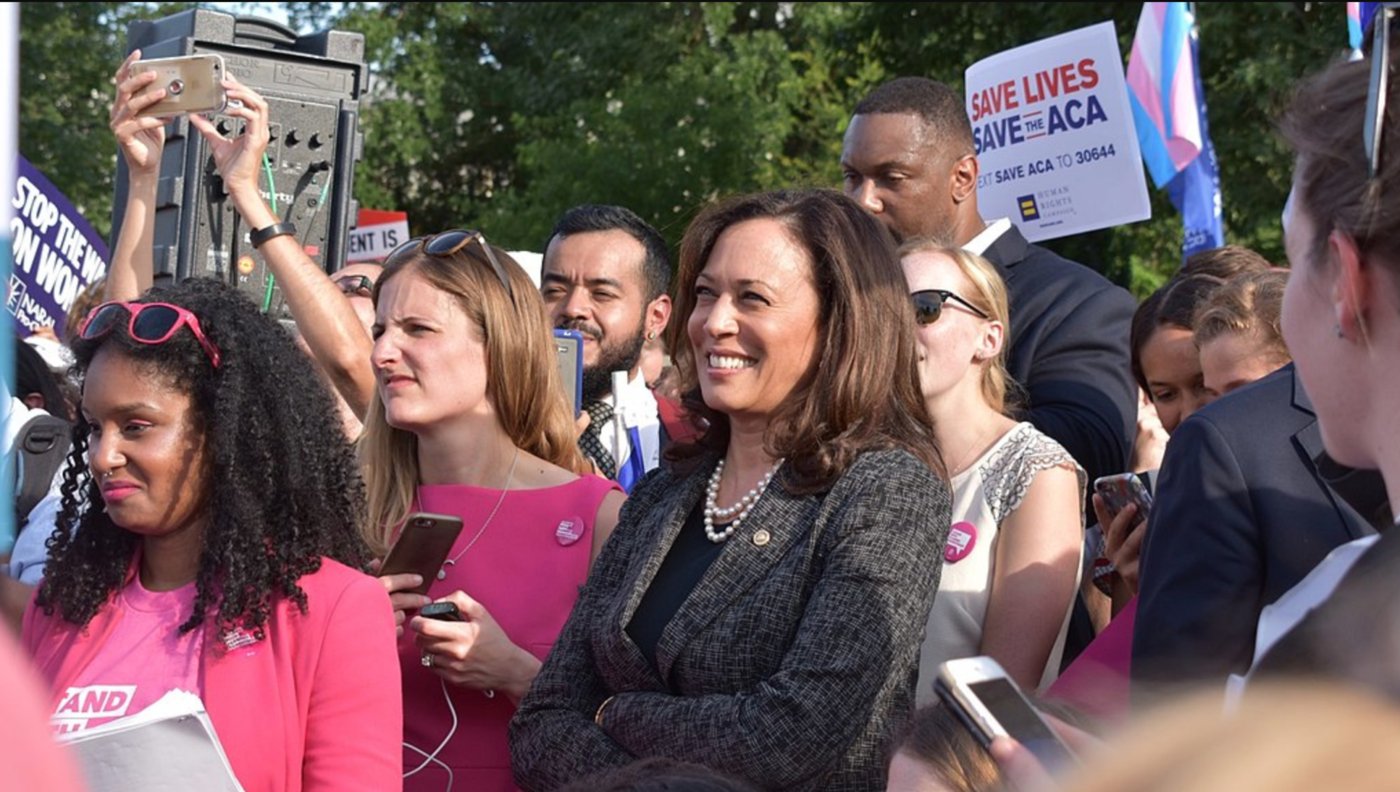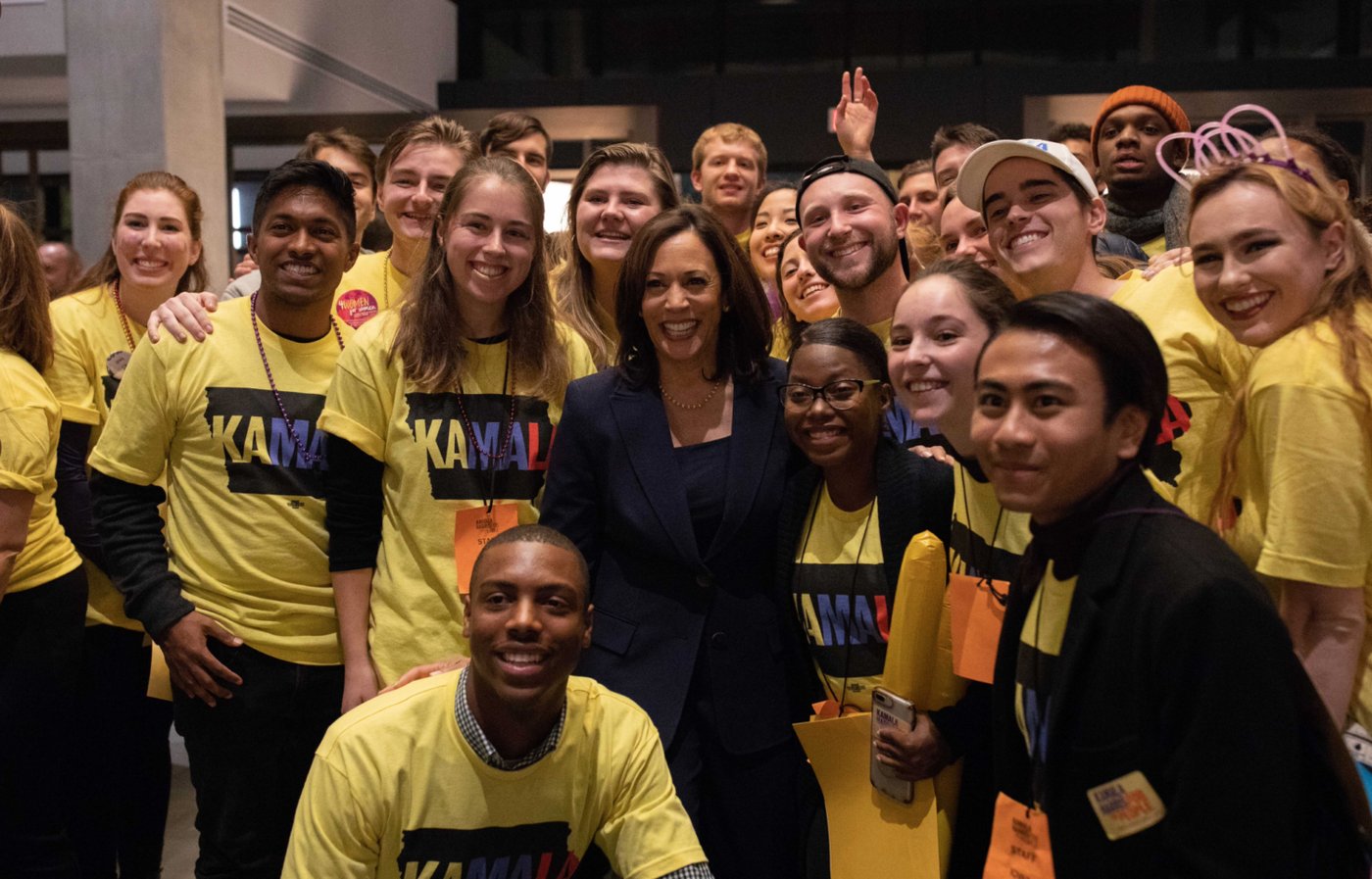
.svg)
The Biden/Harris Immigration Policy in Focus
Immigration has long been one of the most debated issues in U.S. politics. Under the Biden administration, it has taken center stage, with Vice President Kamala Harris playing a visible role in shaping both the conversation and the policy agenda. Together, their approach reflects a balance between expanding humanitarian protections, restoring legal pathways, and tightening enforcement at the border.
Biden’s Immigration Legacy: Major Shifts in Policy
Day One Reversals and Early Actions
From his first day in office in January 2021, President Biden moved quickly to reshape immigration policy. He halted construction of the U.S.–Mexico border wall, ended the Trump-era "Muslim bans," and created a task force to reunite families separated at the border. He also reinstated Deferred Enforced Departure (DED) protections for Liberians and began dismantling barriers that had slowed legal immigration and naturalization.
Restoring Legal Pathways and Refugee Resettlement
The administration prioritized expanding lawful immigration. Refugee admissions increased dramatically after pandemic-era lows, with annual caps raised back to 125,000 by 2024. Legal immigration and naturalization surged as restrictions were eased, leading to nearly 3.5 million naturalizations during his term, a record-setting achievement.
New Humanitarian Pathways and Technology Tools
To manage border pressure, the administration launched the CBP One app, allowing migrants to schedule asylum appointments, and created humanitarian parole programs for migrants from Cuba, Haiti, Nicaragua, and Venezuela. These channels offered temporary relief to hundreds of thousands of people seeking safety and opportunity.
Enforcement and Border Management
Biden's approach combined humanitarian measures with enforcement tools. He formally ended "Remain in Mexico" but later introduced stricter asylum eligibility rules in 2023, requiring migrants to use lawful entry channels or demonstrate special exceptions. In 2024, he authorized temporary closures of the southern border when daily crossings exceeded a set threshold, reflecting the growing strain on the system.
Deportations and Unauthorized Migration Trends
Despite early criticism of being "too soft," the Biden administration eventually oversaw 271,000 deportations in 2024, the highest in a decade and surpassing Trump-era totals. At the same time, unauthorized migration reached record levels, with Pew estimating 14 million undocumented immigrants in the U.S. by 2023. These contrasting trends highlight the administration's effort to balance compassion with enforcement.
Kamala Harris and the Evolution of U.S. Immigration Policy

Kamala Harris's life story is deeply tied to the immigrant experience. The daughter of Indian and Jamaican parents, she rose in a single generation to hold the nation's second-highest office. Her personal history gives her a unique perspective in debates about immigration, inclusion, and opportunity.
Harris's Record on Immigration
As California's attorney general, Harris's stance on immigration was sometimes criticized as cautious. She initially supported limited cooperation between local police and federal immigration authorities but later shifted to opposing such practices, instead advising law enforcement agencies not to collaborate with ICE.
As a U.S. Senator, she became a strong defender of immigrant rights. She opposed tying protections for Dreamers to border wall funding, fought to expand access to legal representation for migrants, and consistently voted in favor of immigrant-friendly legislation.

Campaign Platforms and Policy Vision
During her presidential campaign, Harris proposed bold immigration reforms. She called for:
- A roadmap to citizenship for Dreamers and their families.
- The restoration and expansion of DACA and related protections.
- Redefining "extreme hardship" to ease family reunification.
- Streamlining visa backlogs, especially for Indian and Chinese immigrants.
Her proposals emphasized using executive authority to provide relief while working toward broader legislative reform.
Harris represents both the promise and complexity of immigration in America. Her personal journey embodies the immigrant success story, while her political career reflects the evolving balance between enforcement, reform, and compassion. Whether advocating for Dreamers, pushing for visa backlog relief, or shaping humanitarian policies, Harris continues to influence how the U.S. approaches immigration.

Looking Ahead
The Biden-Harris administration illustrates how immigration remains one of the most challenging and consequential issues in U.S. politics. Biden’s record shows a mix of reversals, expansions, and enforcement measures, while Harris brought a personal and political dimension that underscores the human side of the debate.
As legal challenges, congressional gridlock, and shifting public opinion continue to shape policy under the current administration, immigration remains a defining issue in U.S. politics.
.png)
.png)
.png)








.svg)
.avif)